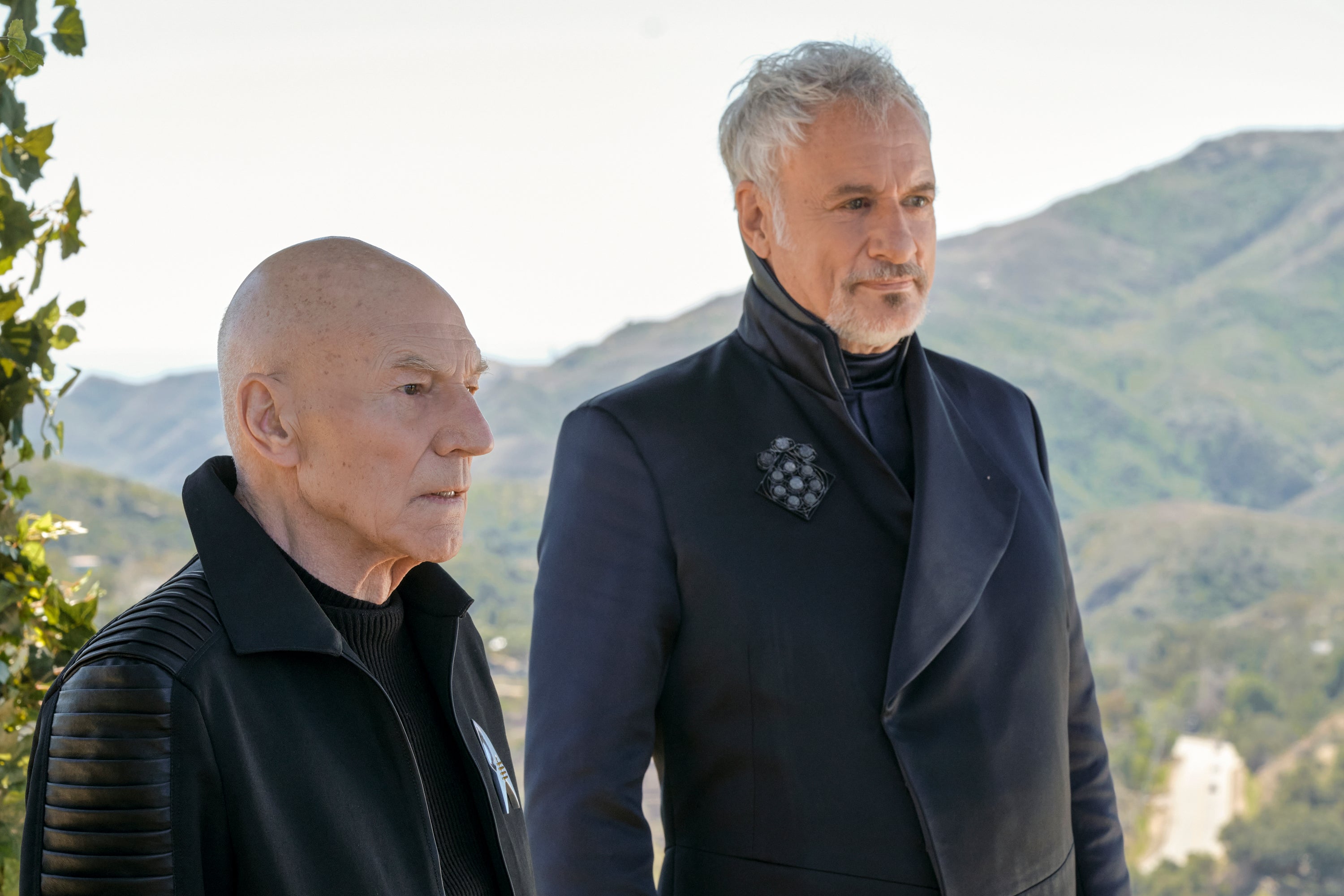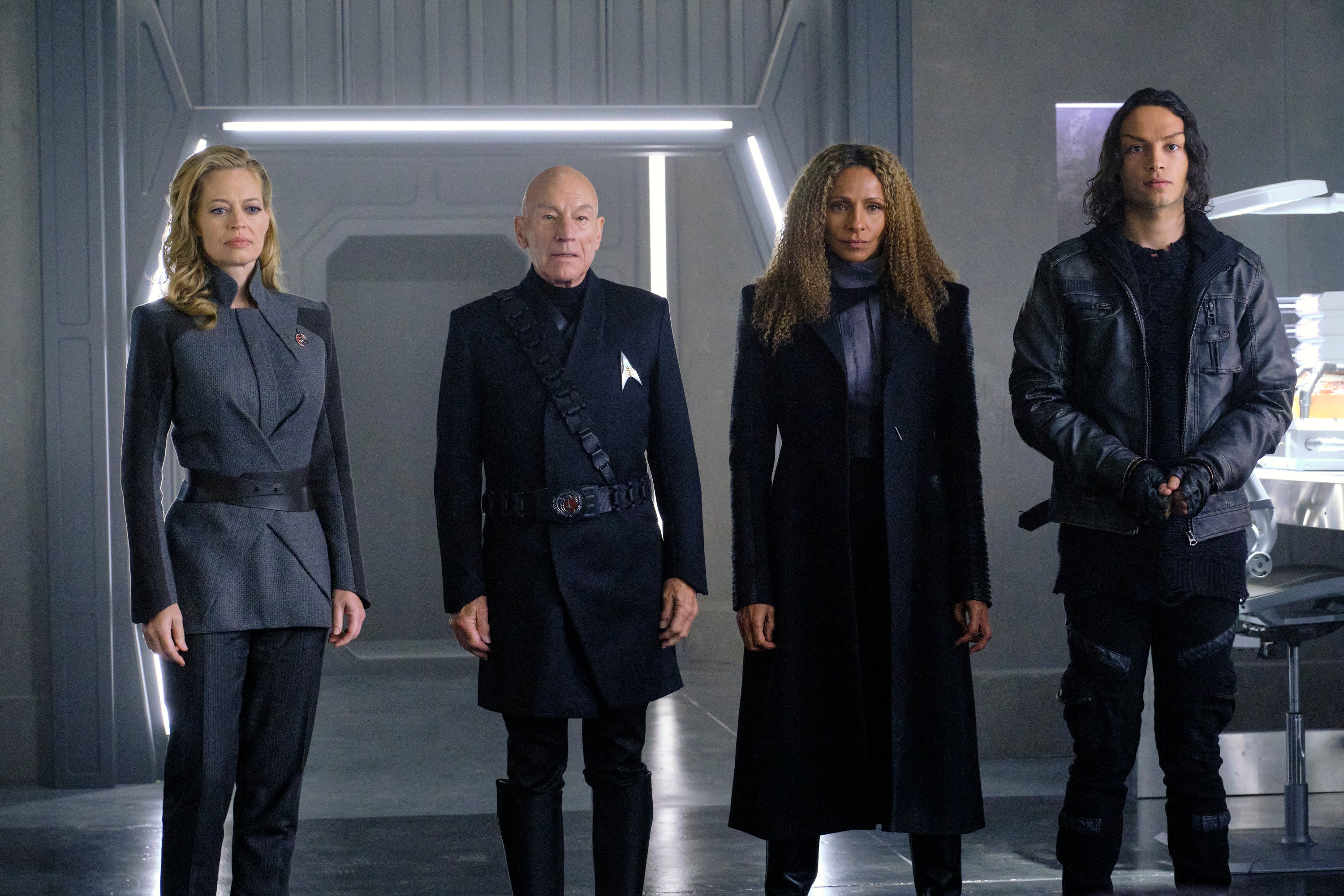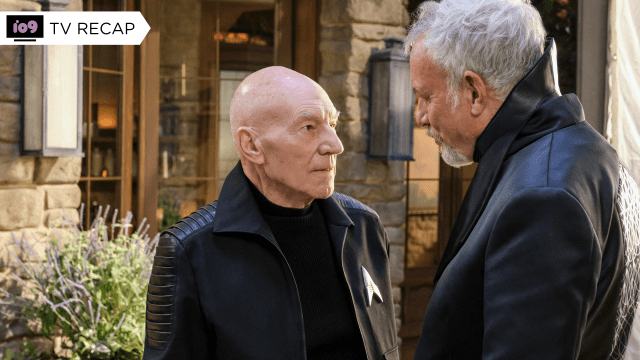Last week’s Star Trek: Picard season two premiere barreled along into a new tone, a new feel, and a level of confidence in what it wants from its titular hero in a way the first season rarely failed to muster. That confidence continues thoroughly in its second episode, which just asks the most Star Trek of all questions: what if everything was a bit more fascist?

Testing Star Trek heroes by thrusting them into totalitarian worlds is by no means a new concept — after all, it’s what Q did all the way back in “Encounter at Farpoint.” So it’s no surprise that it happens again in “Penance,” with Q back torturing Jean-Luc like he always does. His continuation of the grand trial to test humanity’s worth is to thrust Picard and all his friends into an alternate timeline: one where the great Jean-Luc Picard is a brutal warlord general, and the grand Federation is now a totalitarian human supremacist society known as the Confederacy. But, for all the familiarity of this alt-world premise that Picard mines for all it’s worth, there’s something different here that gives season two an immediate momentum that is, so far, giving it a much more explosive energy than it ever did in its debut season.
From the opening tit-for-tat between Q and Picard — both brimming with anger, lashing out less as a game between God and Man and more as two embittered friends (frenemies?) trying to poke at secrets just beneath the surface — to our slow re-introduction to the rest of team La Sirena through their supposed roles in this totalitarian world, there’s a disgust and tension throughout “Penance” that makes the episode incredibly compelling to watch unfold. As we re-meet Raffi (who is essentially Starfleet chief of police in this reality it seems, hunting down Romulan dissidents like the apparent Elnor), Seven (upgraded to President Annika Hansen of the Confederacy, and seemingly not Borg at all), Rios (a major Commander in the Confederacy’s forces, laying waste to Vulcan), and Jurati (a top scientist experimenting on a very intriguing victim of the Confederacy’s interstellar genocides that we’ll get to later), there’s this collective and immediate revulsion to the circumstances they all find themselves in. It’s all very “Mirror, Mirror,” as each has to grapple with shouldering their distress at being part of such a horrible world while also being convincing enough to not let slip that they’re not really part of that world, giving “Penance” an easy thrust to lean on as each member of the team has to sneak around in broad daylight, trying to find a way to reunite and get out of this nightmare scenario Q has created. It’s simple, classic Star Trek, and Picard runs with that simplicity to just tell a fun adventure plot.

But there is still metaphorical meat on the bones, even if it is mostly consigned to that opening sequence between Q and Picard. After season one largely tackled Jean-Luc being disillusioned with his place in the galaxy, seeing him bristle with fury and indignance put up against the return of Q is a moment that Patrick Stewart clearly relishes — there is no knowing eye roll here, an “Oh, Q at it again,” breeziness. Stewart and de Lancie circle each other with venomous bite, as Q needles Picard with the horrors of a reality that Q hasn’t whisked up with his vast power, but brought about by a singular tweak in time that makes “General” Picard not some comically twisted mirror, but a possibility that Jean-Luc had to avoid — and in this timeline, didn’t do so. This isn’t a lesson for Q to haughtily mock Picard with, but, as the episode is titled, a biting opportunity for the latter to seek forgiveness for, to face a fear that he knows is deep down within him. What the fear exactly is remains a mystery for Picard to explore going forward, but it’s clear in the man’s reaction to Q’s antics that it’s something that Picard is both furious and frightened to deal with.
That fear, once Picard is reunited with the rest of his friends at the very heart of the Confederacy’s regime — preparing for an “Eradication Day” celebration that marks the Confederacy’s rule by exterminating imprisoned aliens — pushes him to take one hell of a risk in an attempt to right what Q has wronged. It’s revealed that Dr. Jurati’s “secret project” in this reality has been preparing none other than the Borg Queen (played by Annie Wersching with a horrifying glee) for a special Eradication Day execution, the last surviving member of the collective. Picard chooses not to engage in an equally Star Trek idea of weighing the moral balance of letting someone as evil as the Queen be executed by this brutal regime or not — the issue here is less ethical, and more personal. Picard, so thrown by Q’s actions, sidesteps all that entirely to simply ask his team how the hell they rescue the Borg Queen, and use her to track down the change in time and save the day.

The breeziness of that decision speaks not just to Picard’s newfound momentum, but the fear Jean-Luc feels about confronting this deep regret Q has tried to force to the surface. The Borg Queen has petrified Picard ever since he was transformed into Locutus, and even now, with his upgraded body severing any lingering link to her call, the thought of having to work with her instead of recoil in her presence is almost enough to give him pause. But desperate times call for desperate measures — and as Picard and his allies old and new go on the run for a rush back to 2024 (a time that’s very important to Star Trek lore), it’s going to be fascinating to see just how Picard maintains this momentum. After all, even the great Jean-Luc Picard has to stop running at some point, if only to confront just what it is Q wants out of him.
